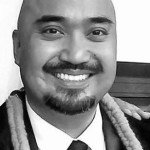The Asian American Psychological Association (AAPA) condemns the recent arrest and school suspension of a Texas 14-year old student, Ahmed Mohamed, for bringing a self-initiated engineering project to school that the school authorities and the local police believed to be a bomb. We are heartened by the chorus of support for Ahmed, and we hope that his ingenuity and interest in the sciences will continue to be encouraged and nurtured despite this incident of egregious injustice.
We believe Ahmed’s case represents a wider climate of fear pervading our nation that disproportionately targets scientists of color and scientists of immigrant origin as possible suspects in espionage and terror. Just recently, Professor Xiaoxing Xi, a former chair of Temple University’s physics department, was arrested and accused of sharing sensitive data with Chinese scientists. In 2014, Sherry Chen, a Chinese American hydrologist at the U.S. National Weather Service, was accused passing on information about American dams to China and lying about meeting with a high-ranking Chinese official. In both cases, Prof. Xi and Ms. Chen – who are both American citizens – were arrested and led away in handcuffs and suffered devastating effects of unjust incarceration. Both scientists were cleared of espionage-related charges and all other charges, yet both incidents clearly jeopardized the work and family lives of the scientists. Despite being cleared of charges, Ms. Chen was dismissed from her government job and Dr. Chen was relieved of his chairmanship at the department. These cases are reminiscent of the wrongful persecution of Dr. Wen Ho Lee, another Chinese American scientist accused of espionage in 1999.
As a national psychology organization committed to promoting the well-being of Asian Americans and Pacific Islanders, we express our concern that scientists and budding scientists of immigrant origin are being targeted unfairly because of their race, ethnicity, and/or religion. There is ample evidence from psychological research that Asian Americans and others of immigrant origins are seen as “foreign” regardless of their citizenship status. These “forever foreigner” stereotypes, when applied to scientists, can have devastating effects not only on the scientists themselves but also on AAPI communities and scientific communities more broadly. Asian American and Pacific Islander Americans are diasporic communities with kinship and cultural ties to Asia and beyond. Scientific progress rests on collaborations within and across borders. And students who dream of future careers in STEM fields must be encouraged rather than criminalized. We call on the U.S. Department of Justice to investigate the possible ethnic bias in the arrests of multiple scientists of immigrant origins. We call for schools to engage in open dialogue with families and community about their experience with the schools and a transparent and critical review of disciplinary actions against students of color. Finally, we stand with our communities of color to promote greater awareness of the damages that xenophobia and racial stereotypes can inflict on our society.
[AAPA Statement on Xenophobia Targeting Scientists]







